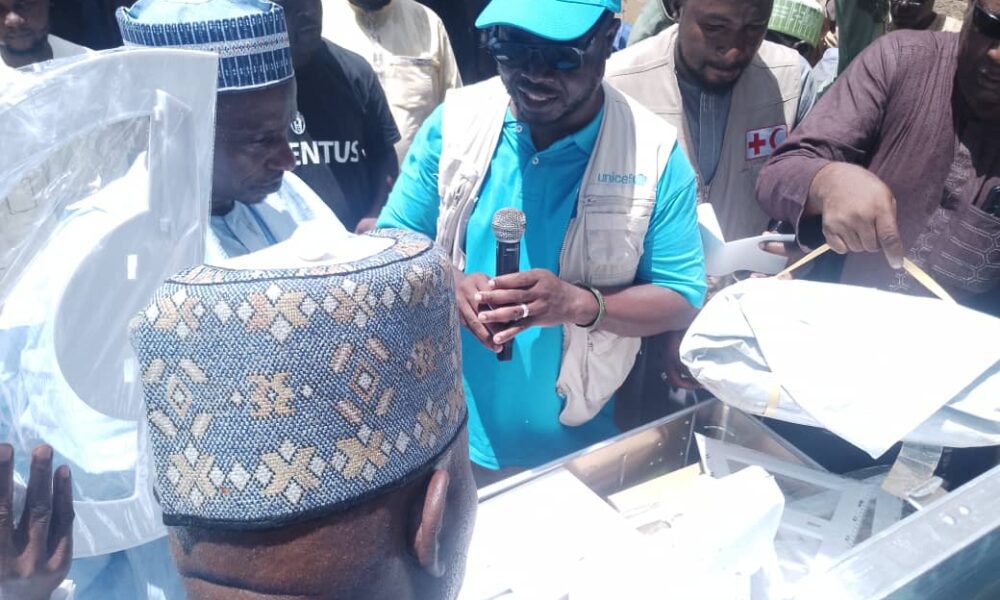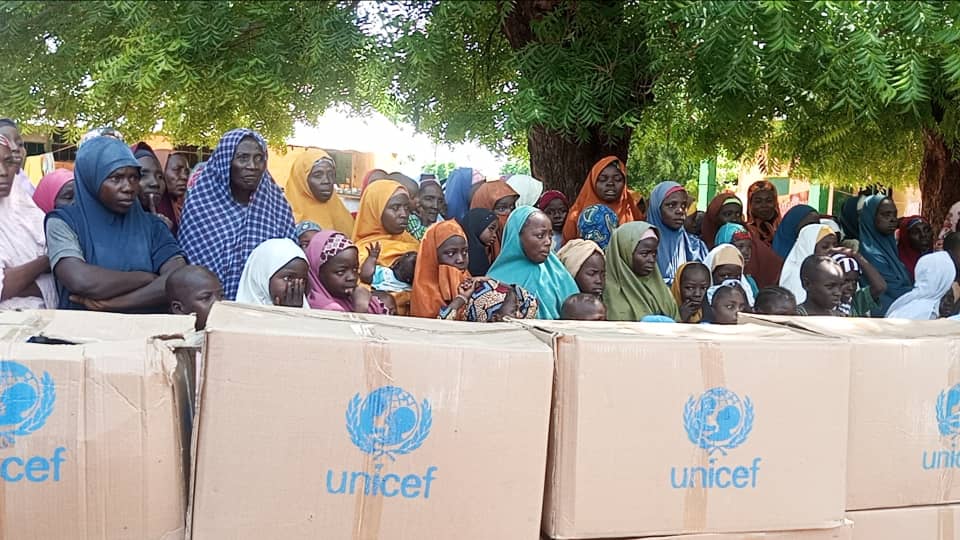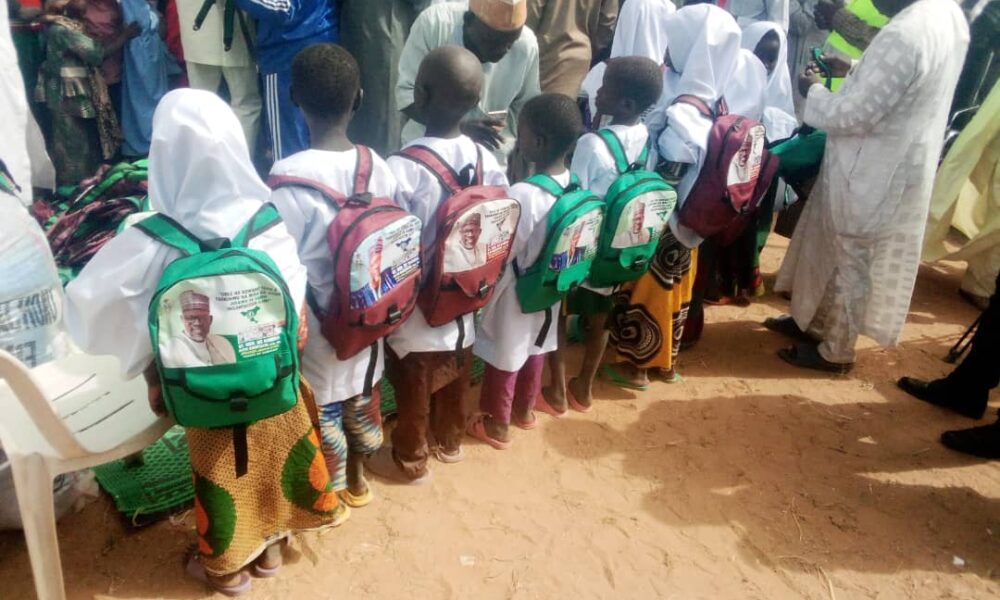By Ahmed Rufa’i, Dutse
The United Nations Children’s Fund (UNICEF) has donated 400 tents to the Jigawa State Government to provide temporary classrooms for thousands of primary school pupils whose schools were converted into Internally Displaced Persons (IDP) camps due to severe flooding across the state.

During the handover of the tents and other educational materials to the Executive Secretary of the State Emergency Management Agency (SEMA), Dr. Haruna Mairiga, at Nasanawa Village Primary and Junior Secondary Schools in Gwaram Local Government Area, Mr. Rahama Muhammad, Chief of the UNICEF Kano Field Office, highlighted the importance of this intervention. Represented by Mr. Michael Banda, he stated, “Today, I wish to announce additional support to the Ministry of Basic Education in Jigawa through SEMA from UNICEF and UNHCR in the form of 400 tents and 20 ‘school-in-a-box’ kits, with a total estimated value of 45 million Naira.”
He explained that this year’s rainy season brought Nigeria its worst flooding in a decade, resulting in the collapse and destruction of hundreds of public education and healthcare facilities, water systems, and sanitation structures.
Around six million people were affected, with an estimated 70% being women and children in multiple states.

UNICEF, in partnership with the United Nations High Commissioner for Refugees (UNHCR), aims to support emergency prevention, preparedness, and response at both national and subnational levels.
“This support will help ensure that classrooms currently occupied by IDPs are vacated so that learning can continue. The use of ‘school-in-a-box’ kits will make learning more resourceful and qualitative,” said Mr. Banda.
In addition to the tents, UNICEF is collaborating with media organizations in Jigawa to broadcast educational radio programs starting immediately and running until December 2024.
These programs aim to provide alternative learning options for children affected by the disruption of traditional schooling.
Mr. Banda emphasized that families, teachers, and the Ministry of Basic Education will work together to minimize disruptions to the learning process.
He also highlighted that one of UNICEF’s core strategies under the 2023-2027 UNICEF-Government of Nigeria Country Programme of Cooperation is to align interventions with the “triple nexus” approach—humanitarian, development, and peacebuilding efforts—to strengthen resilience and find sustainable solutions.
“Our program is focused on risk-informed humanitarian and development nexus programming, enhancing the resilience of systems, households, and communities in line with UNICEF’s Core Commitments for Children in Humanitarian Action,” Mr. Banda added.
In response, Executive Secretary of Jigawa SEMA, Dr. Haruna Mairiga,
expressed his gratitude to UNICEF and UNHCR for their continued support, noting that their efforts will help restore the learning environment for displaced children.




